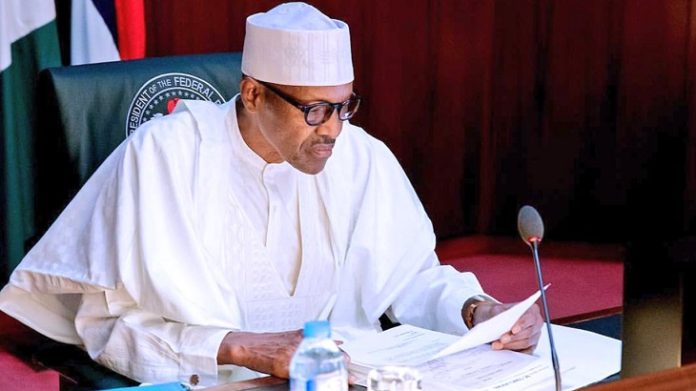By Emeka Alex Duru
Six months after his election, three months after his inauguration, President Muhammadu Buhari, eventually assigned portfolios to his 43 ministers, on Wednesday, August 21. Among the key points of the exercise, was the announcement of the creation of five new ministries: Police Affairs, Special Duties/International Affairs, Power, Aviation, and Humanitarian/Disaster Management. There were also structural adjustments on some ministries, for example, the separation of aviation from the transport ministry, as well as the merger of the Ministry of Budget and National Planning with the Ministry of Finance.
Power was also excised from the previous arrangement that had it lumped with works and housing in one ministry. The President however, retains the petroleum ministry. Most of the reappointed ministers, retained their positions in a set up that many argue, does not indicate any significant shift from his cabinet in his first term.
The concern by analysts therefore, is the preparedness of the team to take the country to the Next Level which the President had pledged in course of his campaign. This becomes necessary against the backdrop of poor performance by some of the reappointed ministers as well as the adjustments in some ministries that are feared, may have impacts on harmonious execution of policies. Analysts have, for instance, faulted the separation of aviation from the transport ministry, saying it contradicts the plan for multimodal transport development.
The two ministries had been independent of each other until former President Olusegun Obasanjo merged them, just as he did information and communication. Curiously, President Goodluck Jonathan at his time, split aviation to two, even when he was planning intermodal transportation system. On coming to office in 2015, Buhari, citing poor state of the country’s economy, trimmed his cabinet and merged the ministry.
It therefore comes as a surprise that the President, in his second term, finds it convenient to separate the ministry when the government has intermodal transportation in its development plan. Intermodal transportation is the global practice where all transportation infrastructure is integrated with one policy and managed under one ministry.
Buhari’s hold on the petroleum ministry, also provides grounds for concern. Though he had headed the ministry in his days in the military, the templates of activities and interactions between then and now, have changed considerably. On account of his busy schedules with governance and the crippling challenge of insecurity, it is doubtful if he would have the time for the intrigues and fluctuating trends in the ministry. In his first term, on account of his naivety in the industry, the so-called cabal in his administration took advantage of the situation and turned the ministry into a hot bed of politicking and chicanery. Efforts by the then minister of state in the ministry, Ibe Kachikwu to stand up to the manipulations, saw him holding the wrong end of the stick in the ensuing power game. Insinuations are that it was those engagements that worked against his reappointment. There are fears that the new minister of state, Timipre Sylva, may face similar hurdles.
The time taken to constitute the cabinet, is also not considered ideal in a system with slow economic growth. Nigeria, whose Gross Domestic Product (GDP) used to grow at an average of seven per cent, has continued to totter with growth hovering around two per cent. The latest data released by the National Bureau of Statistics showed that Nigeria’s GDP slowed to 2.1 per cent in the first quarter of 2019, compared to the 2.38 per cent recorded in the fourth quarter of 2018. Expectations were therefore that on account of this scary indicators, the president should have hit the ground running immediately after his inauguration. This is especially as the cabinet has turned out comprising over 75 percent of members of the previous team. Taking off earlier, would also have enabled the new ministers get acquainted with the workings of their ministries. This is especially as some of the ministers are already confessing ignorance of the demands of their ministries.
The Minister of Interior, Rauf Aregbesola, has for instance, conceded lacking knowledge of how the ministry operates, stressing that the little he knew about it was what he gleaned from the pages of newspapers. Aregbesola who disclosed this Wednesday in Abuja during his maiden visit to the ministry, told top officials of the ministry that apart from stories about the ministry on the pages of the Newspapers, he had no idea of its policies and operations. “My relationship with the ministry is distant. What I know about the ministry is what I read in the Newspapers,” he confessed.
Some of his colleagues are also in similar situation. A Senior Lecturer in the Department of History and International Studies, Lagos State University (LASU), explains the Aregbesola dilemma as a major challenge in Nigeria’s governance system, adding that such is a situation that obtains when appointments are based on patronage and other fleeting considerations. “This is the problem with us. How could the president have appointed somebody to a ministry he does not know anything about and perhaps has no affection for? That is Nigeria for you. And to think that such a person who has confessed outright ignorance of the system is being assigned to head the Ministry of the Interior, makes the action more pathetic. I have since the confession by the minister, been asking if even the President knows the relevance of that ministry to the corporate existence of the country”, he said.
According to the don, the massive infiltration into the country by illegal aliens and the nuisance they are causing the citizens, the pervading insurgency by armed groups and the technicality of the ministry, should have guided the President in appointing somebody with intelligence background to head the ministry. He also analysed other ministers and their portfolios and concluded that the cabinet may not hold much in meeting the expectations of Nigerians.
Dr. Emma Ogbuehi, a public affairs analyst, however asked for the President and his team to be given some time to prove themselves. He particularly commended Buhari for retaining many of his ministers, adding that the measure will ensure continuity in government programmes and policies. “We should, as a matter of fact, give kudos to the President for the culture of stability that he is introducing in the system. With what he is doing, there will be room for long term planning. This is a radical departure from the previous arrangement that was characterized by uncertainties and should be commended. It was then the norm for someone to be appointed today and removed tomorrow. Officials, could not plan in such situation. But now, the pressure of the likelihood of being removed on flimsy excuses, is drastically reduced”, he said.
He expressed the hope that the president would not fail Nigerians this time around. Somehow, Buhari seems to reckon with the urgency of the situation at hand, given his admonition to his ministers that they could not afford to disappoint Nigerians, but rather rise up to the challenge of lifting the mass of the people out of poverty through their dedication to duty and high performance. To demonstrate his resolve in this direction, he unveiled a new mechanism, known as the Minister’s Mandate, to track and monitor the performances of the 43 newly sworn-in ministers.
Ogbuehi explained the measure as a step in the right direction. It however remains putting the strategy in place and offering the ministers the needed environment to function.













